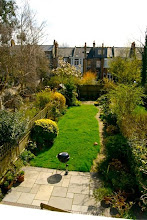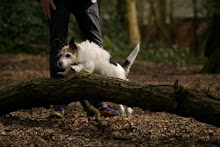


I’ve been longing for the clocks to go forward for the past three months – impatient for the lengthening evenings, the light at the end of a wintry tunnel – but I’m also aware of how time seems to be passing more quickly than usual, which is as much a symptom of growing older as the wrinkles around my eyes. And if an hour has been lost today, then what else have I lost in the last year, whilst anticipating what hasn’t yet happened, instead of living in the moment?
Hence my swooping between exhilaration and melancholy -- a blend of shadow and sunlight that seems to me to be characteristic of this time of year, as well as my time of life -- making Tove Jansson’s ‘The Summer Book’ more timely than ever. Written in 1972, when the author was 58, and grieving for her mother, who had died the previous June, the book is a celebration of the joys of summer – swimming, gathering berries, making boats of bark -- yet also an acknowledgement that winter always returns.
Anyone who loves Jansson’s Moominland adventures, as I have done since childhood, will recognise her gentle humour and wisdom; but this less famous adult novel is more rooted in autobiographical realism than the quirky Moomintrolls. The story of an elderly woman and her granddaughter, Sophia, who spend the summer together on a tiny island in the gulf of Finland, it reflects Jansson’s equally remote retreats to an outer archipelago, and her relationship with her mother and niece (also named Sophia).
The early pages of ‘The Summer Book’ describe Sophia’s awakening on an April night, when the moon is full and the sea still covered in ice. She remembers that ‘they had come back to the island and that she had a bed to herself because her mother was dead.’ “When are you going to die?” she asks her grandmother. “And grandmother answered, ‘Soon. But that is not the least concern of yours.’” Death, like winter, is unavoidable – that much is clear, even if its timing is not quite as predictable as clockwork -- but Sophia discovers the simple freedoms of summer are precious, and her grandmother’s love undimmed, even as darkness falls, and time seems to be running out.















